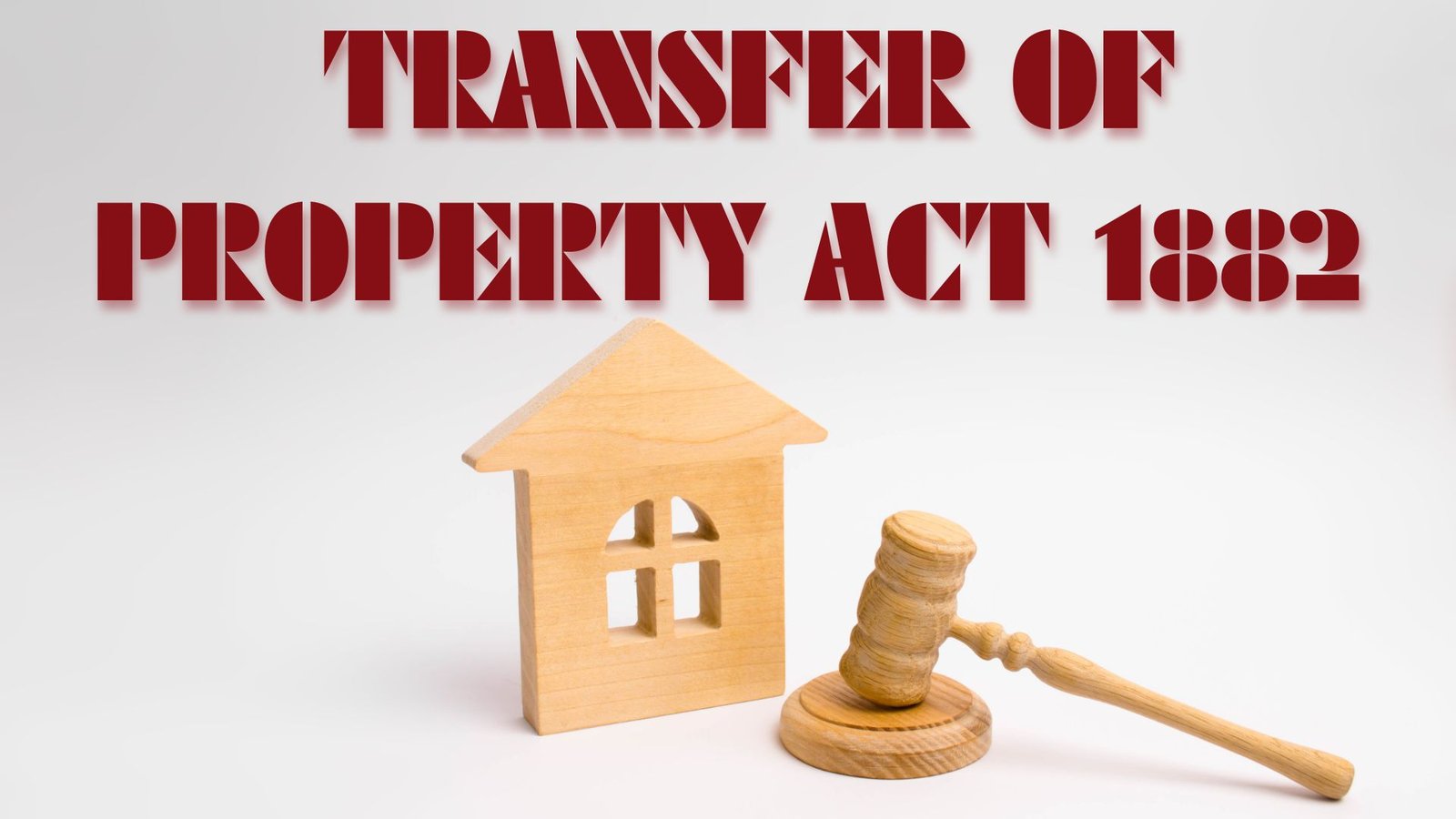On this page you will read detailed information about Section 54 of Transfer of Property Act.
As a property law professional, understanding the intricacies of Section 54 of the Transfer of Property Act is essential for navigating sales of immovable property. This provision lays out conditions regarding the sale of land, houses, and other real estate, aiming to balance the interests of buyers and sellers. In your daily practice, you will encounter issues related to this Section’s clauses on sales by persons with defective titles or limited interests in a property. This article will provide much-needed clarity by methodically walking you through the Section. Key topics covered include analyzing its scope and applicability, exceptions to the rule against sales by unauthorized persons, consequences of such transfers, and remedies available to purchasers. Equipped with this comprehensive understanding, you will be well-positioned to confidently handle property sale agreements and disputes involving Section 54.
What Is Section 54 of the Transfer of Property Act?
Section 54 of the Transfer of Property Act 1882 deals with the transfer of property under sale as laid out in the act. According to the section, the transfer of property sold should not be postponed beyond the time period explicitly mentioned in the contract of sale.
If a date for the completion of the sale is not specified in the contract, the transfer of the property must take place within a reasonable period. What constitutes a “reasonable period” depends on the nature of the property and the terms of the contract. Generally, it means within 3 to 6 months from the date of the contract.
For the sale of immovable property like land or buildings, the transfer should be completed within a reasonable time frame by registering the sale deed. The registration helps to establish the ownership of the buyer, prevents future disputes, and protects the buyer from any third-party claims. Failure to register the sale deed within the stipulated time can lead to legal consequences.
The section also covers instances where the seller neglects or refuses to complete the sale. In such cases, the buyer has the right to file a suit for specific performance and compel the seller to execute the sale deed to complete the transfer. The buyer can also claim compensation from the seller for any loss or damage suffered due to the delay.
On the other hand, if the buyer fails or neglects to perform their part of the obligations under the contract like payment of the balance sale consideration, the seller can terminate the contract. The seller also has the right to forfeit any advance or deposit paid by the buyer. However, the seller must issue a notice to the buyer before terminating the contract, providing reasonable time to fulfill their obligations.
In summary, Section 54 of the Transfer of Property Act aims to ensure that the transfer of property is carried out within a stipulated time frame as agreed between the seller and the buyer in the contract of sale. It protects the interests of both parties and provides remedies in case of any default.
Essential Elements of Section 54
To successfully claim exemption under Section 54, certain essential conditions must be fulfilled. As per the provisions of Section 54, you must utilize the entire capital gains from the sale of a residential house within a specified time period to purchase another residential house property or construct a residential house.
Time Limit for Purchase/Construction
The new residential house property must be purchased within one year before or two years after the date of transfer of the old house. If construction of the new house is commenced within three years after the date of transfer, the exemption can be claimed. The time limit of two/three years can be extended in certain circumstances as per Section 54(2).
Ownership of New House
The new residential house property must be in your ownership. The ownership can be either individually or jointly with your spouse. The new house does not need to be purchased in the same name as the old house. However, you must have a share in the new property.
Residential House Property
The new asset must be a residential house property. Any commercial property like office space, shop, godown etc. will not qualify for exemption under Section 54. The new house can be either freehold or leasehold.
Cost/Capital Gain Investment
The entire capital gains from the sale of the old house must be invested in the new residential house property. If the purchase price of the new house is less than the capital gains, the balance amount cannot be invested elsewhere. The new house must be purchased using the capital gains proceeds only.
No Other Residential House (except one)
On the date of transfer of the old house, you should not own more than one residential house property other than the new residential house. However, this condition is not applicable if the old house is transferred due to shifting of place of employment, business or profession.
Following these essential elements meticulously will help you claim exemption under Section 54 of the Income Tax Act for the capital gains arising from the sale of a residential house property. Do consult a tax advisor to understand the nuances and ensure all conditions are fulfilled.
Scope and Applicability of Section 54
Section 54 of the Transfer of Property Act deals with contracts for sale of property. It covers the rights and liabilities of the seller and buyer in case of such contracts.
In the previous post, we had shared information about Understanding the Street Vendors Act of 2014, so read that post also.
Essentials of a Valid Contract
For a contract for sale of property to be valid under Section 54, certain essentials need to be fulfilled:
- The parties must be competent to contract, i.e. they should be of sound mind and not minors or undischarged insolvents.
- Consent should be free, i.e. not obtained by coercion, fraud, misrepresentation or undue influence.
- The object of the contract should be legal, i.e. it should not be forbidden by law or opposed to public policy.
- The contract should be supported by lawful consideration. Consideration means something in return, e.g. money.
- The terms of the contract should be certain, i.e. not vague or indefinite. Details like property description, sale price, possession date, etc. should be clearly specified.
- Intention to create legal relations: The parties must intend to create legally binding relations, not merely a social agreement.
- The contract should be in writing and registered according to the law. Oral agreements relating to sale of immovable property are not valid.
Rights and Liabilities
Once there is a valid contract for sale, certain rights and liabilities arise for the seller and buyer:
- Seller’s rights: Receive the sale price, interest if any till payment, expenses incurred for the sale.
- Seller’s liabilities: Handover title deeds, give possession, indemnify buyer against defects in title, pay outgoings like taxes till date of possession.
- Buyer’s rights: Get title, possession, ownership, ask for indemnity from seller against defects in title.
- Buyer’s liabilities: Pay the full sale price with interest if any, bear outgoings once taking possession, perform other obligations like getting required permissions.
In summary, Section 54 lays down the legal framework for contracts relating to sale of property. By understanding its scope and applicability, one can ensure such contracts are properly drafted and the rights and liabilities of parties adequately addressed.
Distinction Between Section 53 and 54
Section 53 and 54 of the Transfer of Property Act deal with transfer of ownership of immovable property. However, there are some key differences between these sections that are important to understand:
Section 53 refers to ‘sales’ of tangible immovable property such as land or buildings. It specifies that a sale can be made only by a registered instrument and the transfer of ownership takes place once the sale has been registered.
On the other hand, Section 54 refers to the ‘transfer of ownership’ of immovable property through means other than sale, such as gift, exchange or will. Like Section 53, Section 54 also requires that the transfer of property be made only through a registered instrument. However, the key difference is that under Section 54, the transfer of ownership takes place as soon as the instrument has been registered.
In summary:
- Section 53 deals specifically with the sale of immovable property, while Section 54 deals with transfers through means other than sale.
- Under both sections, the transfer of property must be through a registered instrument.
- However, while ownership is transferred upon registration under Section 54, under Section 53 ownership is transferred once the sale has been registered.
- Section 53 requires the execution of a sale deed, whereas Section 54 can involve other instruments such as a gift deed, exchange deed or will.
By understanding the nuanced differences between these similar yet distinct sections of the Transfer of Property Act, one can ensure the correct procedures are followed for transferring ownership of immovable property. Following the proper legal steps will help avoid potential disputes or complications in the future.
Court Rulings on Section 54
Section 54 of The Transfer of Property Act, 1882 deals with sales of immovable property. The section specifies certain rights and responsibilities of both buyers and sellers involved in property transactions. Over the years, various High Courts have interpreted Section 54 and passed judgments clarifying its scope and applicability.
The Delhi High Court ruled that under Section 54, once a sale deed is executed and registered, the title and ownership of the property gets transferred to the buyer. The seller cannot cancel the sale unilaterally. The buyer has the right to get the property transferred in their name.
The Bombay High Court held that a seller cannot forfeit the earnest money deposit and cancel the sale if there is a slight delay in payment by the buyer. The delay must be substantial and willful to warrant cancellation and forfeiture of deposit. The court must examine the conduct of both parties to determine if the delay merits cancellation.
The Kerala High Court stated that part performance of an oral agreement of sale of immovable property makes the agreement enforceable under Section 54. If the buyer has taken possession and made improvements to the property based on the agreement, the seller cannot renege from honoring the agreement. Part performance gives the buyer a right over the property that can be enforced against the seller.
Section 54 aims to regulate property transactions, safeguard the interests of buyers and sellers, and ensure fair dealing between the parties involved. Over the years, various High Courts have interpreted the scope and application of Section 54 through their rulings by clarifying the rights and responsibilities of stakeholders in property sales. These judgments have strengthened and refined this section of The Transfer of Property Act.
When Can the Transfer Be Challenged Under Section 54?
Under Section 54 of the Transfer of Property Act, the transfer of immovable property can be challenged in court on several grounds. As the transferee, it is important to understand when and how your rights over the property may be contested to avoid legal issues down the road.
A transfer can be challenged if the transferor did not have the legal capacity or authority to transfer the property. This includes scenarios where the transferor is a minor, or the property belongs to a trust or company and the transferor did not have the proper permission or authorization to conduct the transfer on their behalf.
Fraud or misrepresentation on the part of the transferor can also be grounds to contest a transfer under Section 54. If the transferor willfully hid defects in the property or made false statements to induce you to accept the transfer, the transfer can be voided. Similarly, if the consent of the transferee was obtained by coercion, intimidation or undue influence, the transfer may be challenged.
Transfers that violate laws or public policy may be challenged as well. This includes transfers where the objective or consideration for the transfer was illegal, or where the terms of the transfer aim to defeat or delay the rights of creditors. Transfers in contravention of the provisions of any law may also be contested.
Lastly, pre-existing rights of other parties can threaten the validity of a transfer. If the property was already mortgaged or charged, or if third parties have rights of way or easements over the property, the transfer can be challenged unless these rights have been properly discharged or the third parties have consented to the transfer. As the transferee, conducting due diligence on the property and verifying the transferor’s right and authority to transfer the property is key to ensuring a valid and uncontestable transfer.
In summary, transfers in violation of laws, by those lacking proper authority, through fraud or misrepresentation, or threatening the rights of third parties may be challenged under Section 54 of the Transfer of Property Act. Exercising caution and conducting thorough due diligence can help avoid such legal contestations over your property rights.
Defenses Available Against Section 54 Claims
As a property owner, there are several defenses you can raise to protect yourself against claims made under Section 54 of the Transfer of Property Act.
Lack of Notice
For a claim to be successful under Section 54, the claimant must show that you had notice of their interest in the property. If you can prove that you did not have knowledge about the claimant’s interest, their claim will not stand. For example, if the agreement creating the interest was not registered, or if the claimant did not take physical possession of the property.
Delay in Enforcing Rights
The claimant cannot delay enforcing their rights indefinitely. If there has been unreasonable delay that has prejudiced your position, the claim may be rejected. For instance, if you made improvements to the property or invested money in good faith during the period of delay. Courts consider each case based on the specific facts and circumstances.
Acquiescence
If the claimant actively acquiesced to your interest in the property through words, conduct, or silence, they may be estopped from enforcing their rights under Section 54. For example, if the claimant stood by while you were purchasing and registering the property, improving it, or dealing with it in a manner inconsistent with their interest. Mere inaction or passive acquiescence is typically not enough.
Part Performance
Where there has been part performance of an unwritten agreement, the rights of the parties are protected. If you have partly performed your obligations under an oral agreement relating to the property, the claimant’s Section 54 claim may fail. The acts of part performance must be unequivocally referable to the agreement and substantial enough to warrant protection.
Limitation Period
Claims under Section 54 are subject to the law of limitation. The period of limitation for immovable property is 12 years. If the claimant does not file a suit to enforce their interest within 12 years from the date when their right to sue first arose, their claim will be time-barred. The delay begins when the claimant has knowledge of their interest being infringed.
In summary, there are various defenses available to property owners against claims made under Section 54 of the Transfer of Property Act. By demonstrating a lack of notice, delay, acquiescence, part performance or expiry of the limitation period, you may be able to successfully defeat such claims. You should consult a legal expert regarding the specifics of your case.
How to Protect Yourself From Section 54 Claims
To avoid issues under Section 54 of the Transfer of Property Act, it is prudent for property owners and purchasers to take certain precautions.
When selling or purchasing immovable property, conduct thorough due diligence to determine if there are any existing encumbrances, mortgages, charges, or liens on the property. Scrutinize the title and property records to uncover any problematic claims that could be enforced under Section 54. It is also advisable to obtain title insurance to safeguard against any title defects.
For property owners, register your ownership rights and any charges or mortgages on the property with the relevant sub-registrar to establish your claim. This will help prevent others from staking a claim under Section 54. You should also inform any tenants, licensees or occupants about the property’s ownership and title to avoid issues with adverse possession.
For property purchasers, in addition to conducting due diligence, you can protect yourself by including certain clauses in the sale agreement. You may insert a clause requiring the seller to provide an encumbrance certificate from the sub-registrar stating that the property is free of any mortgages, charges or liens. You can also include an indemnity clause where the seller agrees to indemnify you against any Section 54 claims that may arise in the future regarding the property.
Upon registration of the sale deed, the purchaser should immediately register the deed and have the property mutated in the revenue records to establish ownership. The purchaser should also inform any existing tenants or occupants about the change in ownership.
By taking appropriate precautions, property owners and purchasers can mitigate risks associated with Section 54 of the Transfer of Property Act. Conducting due diligence, obtaining title insurance, registering ownership and including protective clauses in agreements are some of the measures that can help safeguard properties from problematic claims. With the necessary safeguards in place, property owners and buyers can have greater assurance in their transactions.
FAQs on Section 54 of Transfer of Property Act
As a property owner in India, it is important to understand your rights and responsibilities under the Transfer of Property Act. Section 54 specifically deals with the sale of property under certain circumstances. Here are some frequently asked questions about Section 54:
The main objective of Section 54 is to protect the interests of the purchaser in case the seller defaults or is unable to execute the sale deed. It provides the purchaser the right to obtain a transfer of property from the seller.
A purchaser can apply under Section 54 in the following situations:
I) If the seller refuses to execute the sale deed after accepting advance payment.
II) If the seller disappears or dies before executing the sale deed.
III) If the seller is incompetent to execute the sale deed due to unsoundness of mind or minority.
Section 54 provides the following remedies to the purchaser:
I) A suit for specific performance: The purchaser can file a suit against the seller to execute the sale deed as per the terms of the agreement.
II) A suit for refund: The purchaser can file a suit against the seller to recover the amount paid in advance with interest.
III) A suit for compensation: The purchaser can claim compensation from the seller for any loss or damage suffered due to the default.
To apply under Section 54, the purchaser must file a suit in court against the seller. The purchaser will have to prove the agreement of sale, advance payment made, seller’s refusal to execute the sale deed, and damages or loss suffered. The court may pass a decree for specific performance, refund of advance with interest, and/or compensation as demanded in the suit.
Section 54 provides relief to purchasers in case of default by the seller. As a property owner, you must be fully aware of your obligations under an agreement of sale to avoid litigation under this section. Consulting a legal expert is advisable to understand the nuances of Section 54.
Conclusion
So in summary, section 54 of the Transfer of Property Act details the sale of immovable property as it pertains to the seller transferring ownership and the buyer gaining title. The section outlines requirements around execution of the sale deed, payment, and registration to legally validate the sale. As the buyer, understanding your rights and responsibilities around title transfer and registration under this key section is important. Exercising due diligence by verifying the property’s title and paying the required stamp duty falls within your purview prior to finalizing the purchase. Adhering to the section’s provisions around written agreements and registration better equips you to consummate the property acquisition. We hope this overview has shed light on section 54 and how it governs sale of immovable property.
Disclaimer
The information and services on this website are not intended to and shall not be used as legal advice. You should consult a Legal Professional for any legal or solicited advice. While we have good faith and our own independent research to every information listed on the website and do our best to ensure that the data provided is accurate. However, we do not guarantee the information provided is accurate and make no representation or warranty of any kind, express or implied, regarding the accuracy, adequacy, validity, reliability, availability, or completeness of any information on the Site. UNDER NO CIRCUMSTANCES SHALL WE HAVE ANY LIABILITY TO YOU FOR ANY LOSS OR DAMAGE OF ANY KIND INCURRED AS A RESULT OR RELIANCE ON ANY INFORMATION PROVIDED ON THE SITE. YOUR USE OF THE SITE AND YOUR RELIANCE ON ANY INFORMATION ON THE SITE IS SOLELY AT YOUR OWN RISK. Comments on this website are the sole responsibility of their writers so the accuracy, completeness, veracity, honesty, factuality and politeness of comments are not guaranteed.
So friends, today we talked about Section 54 of Transfer of Property Act, hope you liked our post.
If you liked the information about Section 54 of Transfer of Property Act, then definitely share this article with your friends.
Knowing about laws can make you feel super smart ! If you find value in the content you may consider joining our not for profit Legal Community ! You can ask unlimited questions on WhatsApp and get answers. You can DM or send your name & number to 8208309918 on WhatsApp









